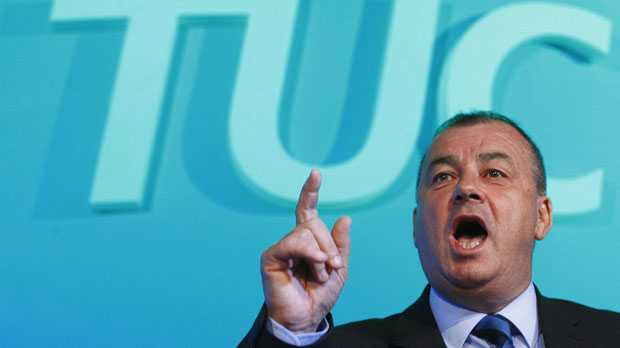Growing number of unions to ballot on strike action
Unions representing over 3 million workers in the public and private sectors across the UK are balloting their members on a nationwide “day of action” on November 30.

So far, nine unions including the GMB, Fire Brigades Union (FBU) and Unison unions say they will ballot their members on strike action in protest over pensions and pay changes. Five other unions including the National Union of Teachers have already taken steps towards carrying out industrial action.
Among those which will conduct strike ballots is the prison officers’ union the POA. Although prison officers are forbidden from striking, POA members who work in the NHS are allowed to vote on the move. If FBU members decide to take industrial action, there would be no emergency cover by the familiar “Green Goddess” army vehicles, which are no longer in service.
The public will be very fed up if there are widespread strikes. Francis Maude
As Channel 4 News has reported, even more walkouts could lie ahead as workers vent their unhappiness at planned changes to pensions, which will see contributions increase by 3.2 per cent.
More widespread ballots for action are expected to be held, adding to support for strikes already given by civil servants, teachers and lecturers, and heralding the biggest outbreak of industrial unrest for decades.
The announcements come as new Government figures show unemployment has risen to 2.51m, largely fuelled by redundancies in the public sector.
Public would be ‘fed up’
Francis Maude, the Cabinet Office minister who is leading negotiations for the government, said he was not trying to provoke unions into industrial action, adding that any strike call will be greeted with little enthusiasm from workers and even less sympathy from the general public.
“We don’t want strikes and the public will be very fed up if there are widespread strikes which close schools and affect health services and transport.
“People who are struggling to pay their bills and paying more towards public sector pensions in many cases than they are paying towards their own pensions will be mightily fed up if there is unnecessary strike action,” he said.
Perfect recipe for industrial action?
"Let's go through that again, massively higher pensions contributions, working for years longer, for a much worse pension, and all at a time when cuts threaten their jobs. And remember this is the only matter about which it is possible to have legal mass industrial strife. Little wonder why the Prime Minister's union tsar, Richard Balfe told me that the Coalition needed to find a way of smoothing out this pain."
Our Economics Editor Faisal Islam looks at why the unions are angry
Labour leader Ed Miliband was heckled yesterday when he told the TUC that strikes over public sector pensions were a mistake. He said he understood why millions of workers were angry, adding: “But while negotiations were going on, I do believe it was a mistake for strikes to happen. I continue to believe that.”
-
Latest news
-
Year of civil war in Sudan ‘a nightmare of hunger and displacement’4m

-
Israel fears repeat Iran attack, says former editor of Jerusalem Post4m

-
How long could it take to clear the Rwanda asylum seeker backlog?3m

-
Rwanda asylum boost for Sunak as bill expected to become law2m

-
Donald Trump trial: day one of historic Stormy Daniels court case4m

-




